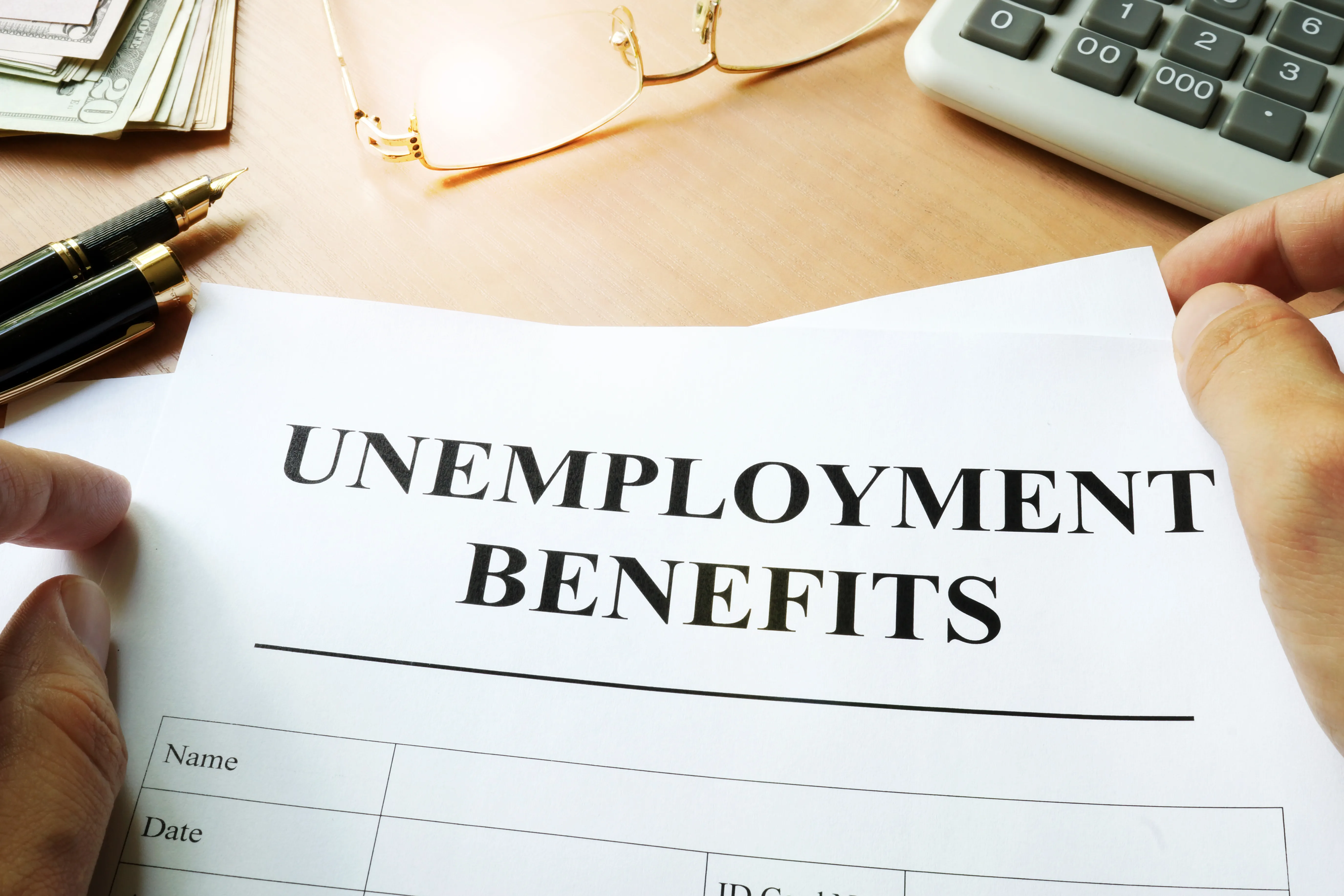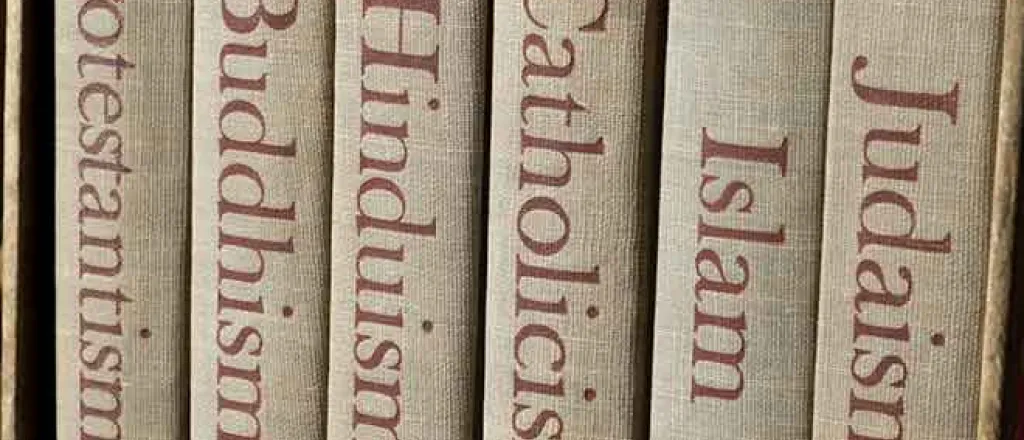
Are some human rights more important than others? Religious freedom advocates often put it first
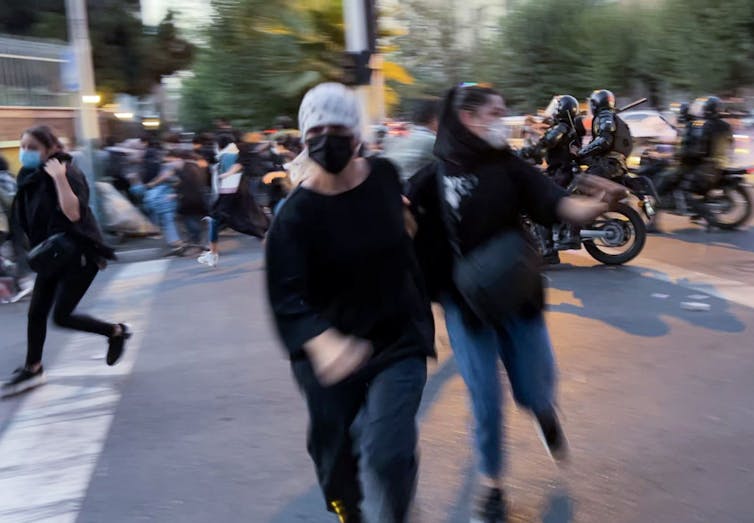
Laura E. Alexander, University of Nebraska Omaha
Every year, the U.S. Commission on International Religious Freedom (USCIRF) releases a report on religious oppression around the world, recommending that the State Department designate specific countries as especially severe violators. In this year’s report, released May 1, 2023, Iran came in for particular criticism after months of protests and arrests sparked by headscarf laws. Sri Lanka, Cuba and Nicaragua were also singled out as areas of concern; Nicaragua is specifically accused of persecution against Catholics.
Created through the International Religious Freedom Act of 1998, the commission exemplifies how the right to freedom of religious expression has come to play a significant role in U.S. discussions about human rights – and not just abroad. Legislation and recent Supreme Court rulings have created a new legal landscape in which religious freedom claims have become more likely to prevail at home, including well-known court cases like the Hobby Lobby ruling on contraception.
Underlying many debates about how courts and policies treat religion is an often-unspoken question: Is any human right – religious freedom in particular – more important than another? And what happens when human rights claims come into conflict?
As a scholar of human rights and religion, I believe it’s important to unpack those questions – and to unpack the difference they make in the lives of people affected by U.S. policies around the world.
For one, for all
For the last several decades, the United Nations has been careful to describe all human rights as interdependent. In this view, protecting any human right requires protecting all human rights.
As an example, think of two distinct rights recognized in the Declaration of Human Rights: the right to adequate food and the right to protest. A person who doesn’t have enough food to live on is unlikely to have the health and energy to protest, and someone deprived of food because of government policies may find it necessary to protest in order to claim their right to food.
The U.N. and many human rights advocates have also argued that all rights are equal: No human right outweighs another.
According to this view, the only permissible reason one right could ever be temporarily suspended is to protect some other right. Even then, restricting the first right should be a last resort, and it should be restored as soon as possible.
For instance, a person with active tuberculosis or some other contagious disease might be ordered to quarantine for a period. Forced quarantine restricts the individual’s right to freedom of movement, but it is considered more urgent to protect other people’s rights to life and health.
In other words, rights might sometimes conflict, but they all depend on each other and are of equal importance in principle. No human right can be ignored or downplayed.
Picking and choosing?
International discussion of human rights has not always reflected this view.
The Universal Declaration of Human Rights was adopted in 1948, after the horrors of the Holocaust and World War II. It captured a general international consensus that rights protection should shape international humanitarian policy. However, when the U.N. General Assembly attempted to make the rights in the declaration enforceable in international law, disagreements about the importance of different types of rights led to not one but two treaties: the International Covenant on Civil and Political Rights and the International Covenant on Economic, Social and Cultural Rights. Some countries have not ratified the first, including China and Saudi Arabia; others have not ratified the second, including the United States.
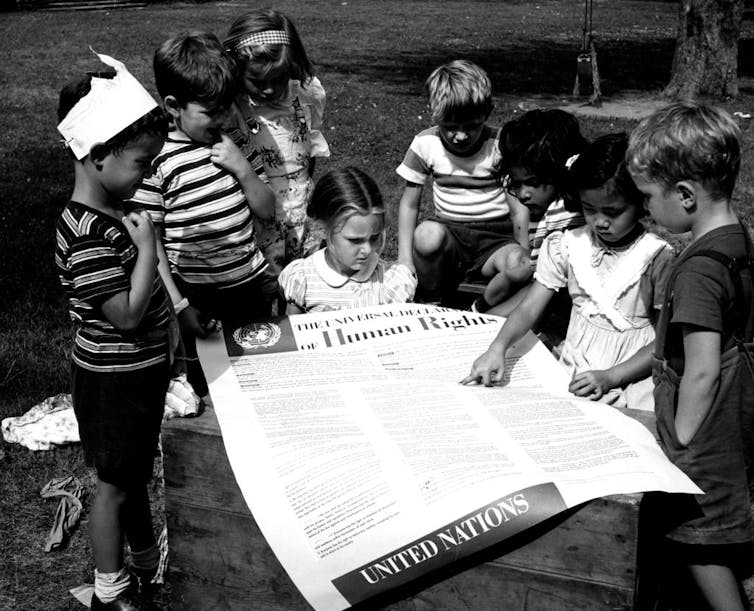
Today, too, many political leaders do not view all rights as equally weighty. For example, the Chinese government is known to regularly invade citizens’ privacy and has brutally repressed minority groups. Chinese leaders and state-owned media have insisted that advancing people’s social and economic rights, such as peace and the right to basic subsistence, takes priority over pursuing civil and political rights.
In the United States, the opposite is true. U.S. leaders and influential thinkers have often argued that civil and political rights, like the right to vote or to a fair trial, are more fundamental than economic and social rights, that they are more practical to uphold, or that they fit more neatly into the country’s history of political thought. For example, some Republican politicians, such as Wisconsin Sen. Ron Johnson and Kentucky Sen. Rand Paul, have argued that health care is a privilege, not a right.
Two-tier rights?
Questions about how U.S. foreign policy should balance protections for different kinds of rights came under a spotlight in 2019, when then-Secretary of State Mike Pompeo created the “Commission on Unalienable Rights.” This commission’s stated goal was to advise the U.S. government on human rights, drawing on both the Universal Declaration of Human Rights and the founding documents of the United States.
USCIRF was not involved in the Commission on Unalienable Rights, but put out a statement in support of its work. At the time, USCIRF’s president was Tony Perkins, best known for his leadership of the evangelical nonprofit Family Research Council. In the statement, Perkins referred to religious freedom as the “most foundational” fundamental right.
The commission’s report received both praise and criticism from advocates and scholars for its attempt to distinguish “unalienable” rights, which all individuals have by nature, from “positive” rights, which are based in custom and written law. The report contends that, “from the founders’ point of view,” property rights and religious liberty are most essential, and governments should promote economic rights only insofar as those rights do not infringe on property and religious liberty rights.
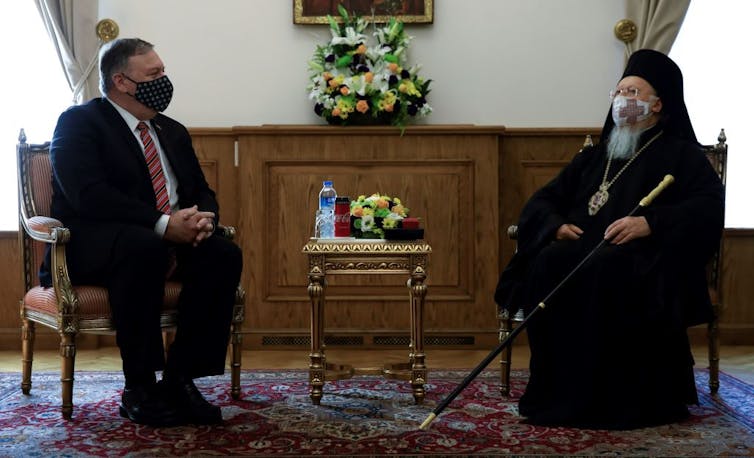
The report also describes a few types of rights claims as matters of debate rather than settled law, such as the right to same-sex marriage, which it calls one of several “divisive social and political controversies” where “it is common for both sides to couch their claims in terms of basic rights.” Two sentences later, the writers argue that an “increase in rights claims, in some ways overdue and just, has given rise to excesses of its own.”
In short, the commission prioritized property rights and religious freedom claims. Pompeo’s State Department acted in line with these priorities, holding two summits on religious freedom with civic and religious leaders from around the world. The State Department also created an “International Religious Freedom Alliance” with more than two dozen nations, without similar initiatives around other human rights.
The course ahead
Under the administration of President Joe Biden, the Commission on Unalienable Rights was shelved. Secretary of State Antony Blinken has argued that all human rights are “co-equal” and has criticized the commission’s report for seeming to create a “hierarchy” of rights.
The State Department under Biden has expressed its intent to advance rights claims of LGBTQ+ individuals. Recently, it threatened sanctions on Uganda over a new bill that would impose punishments as severe as death for same-sex relationships.
The latest International Religious Freedom report demonstrates that the right to religious freedom is threatened in many places. The entire world has a long way to go in ensuring it is meaningfully protected. At the same time, debates remain heated over whether protecting this right should ever mean violating others.![]()
Laura E. Alexander, Associate Professor of Religious Studies, Goldstein Family Community Chair in Human Rights, University of Nebraska Omaha
This article is republished from The Conversation under a Creative Commons license. Read the original article.






